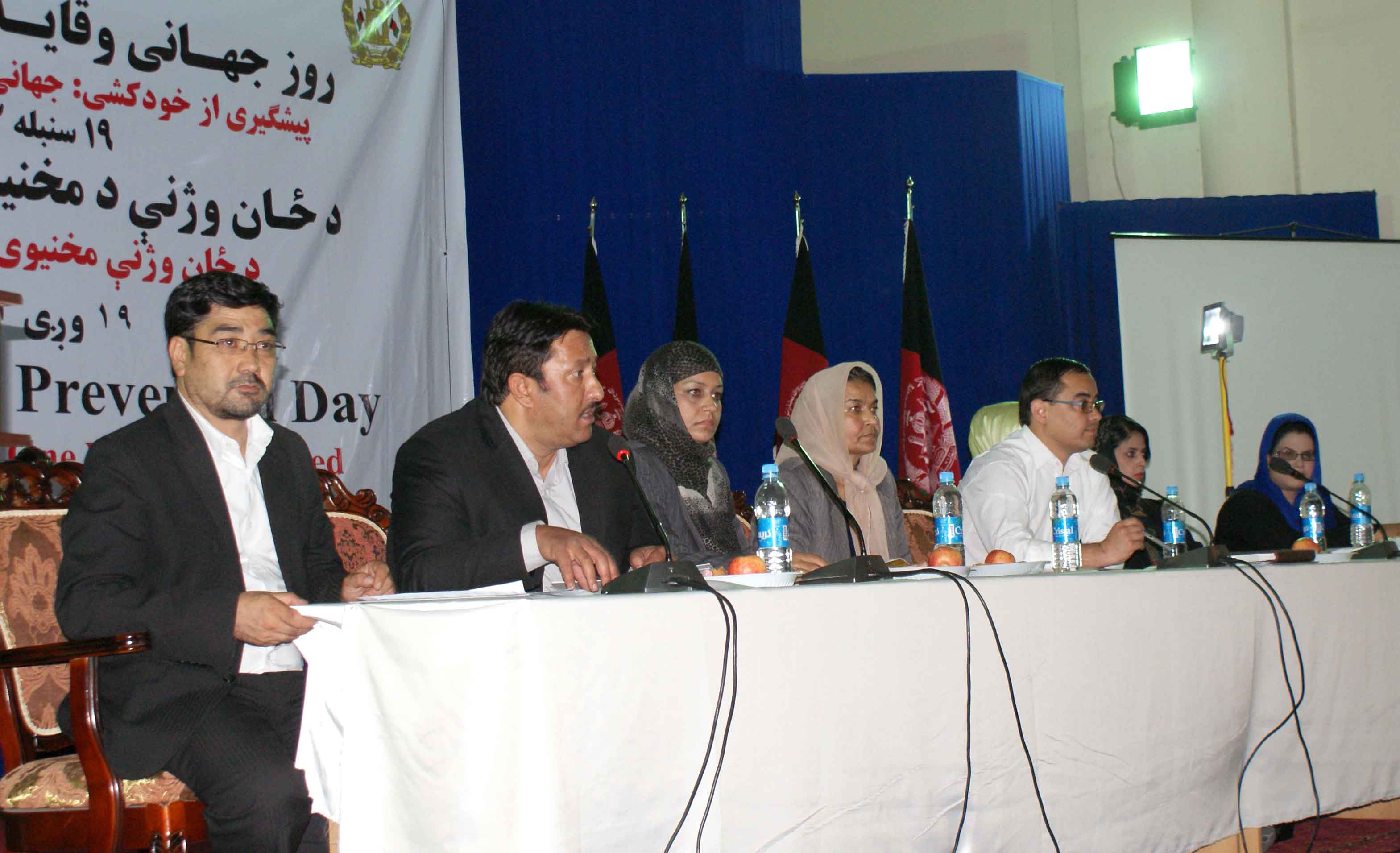World Suicide Prevention Day was marked today at the Ministry of Women's Affairs (MoWA) at an event jointly organized by the Ministry of Public Health, World Health Organization (WHO) and the United Nations Population Fund (UNFPA). The theme for this year's World Suicide Prevention Day is ‘Suicide Prevention: One World Connected', reflecting the importance of connections at several levels to combat suicide. Over 800,000 people die by suicide every year and it is the second leading cause of death in the 15-29 years age group globally.

"The number of lives lost each year through suicide exceeds the number of deaths due to homicide and war combined. Every 40 seconds another family loses a loved one to suicide," said WHO Country Representative Dr Rik Peeperkorn. "Policy and legislative actions are needed to prevent suicide, together with awareness raising of suicide as a public health problem in Afghanistan. Surveillance and reporting on suicides and suicide attempts also needs strengthening to devise effective interventions."
Deputy Minister of Health Care Services for the MoPH Dr Najia Tariq noted that since the beginning of the year, 4466 cases of self-poisoning and 707 cases of self-immolation have been registered in central hospitals. 4136 cases of self-immolation from 30 provinces have been reported, including 166 confirmed suicides. "Together with the Mental Health Department, MoPH has designed a programme for suicide prevention that includes training for psychosocial counselors, professional capacity building on mental health and also establishing psychosocial counseling centers and life skills programmes for schools," said Dr Tariq.
Reliable data on suicide in Afghanistan is scarce. A large proportion of Afghans suffer from mental health problems such as depression, a major risk factor for suicide. Gender-based violence, substance abuse, trauma and stress relating to conflict as well as displacement, poverty and continued insecurity around the country also increase the risk of suicide.
"The majority of reported cases of suicide and suicide attempts in Afghanistan are women," said UNFPA Deputy Representative Dr Wilfred Ochan. "Gender-based violence is among the main causes for women's suicides and self-immolation. According to research, the most common reason for self-immolation is forced or child marriage." A 2007 study on suicide in Afghanistan by Medica states that young girls between the ages of 16-19 are more prone to committing self-immolation, burning themselves to death. Nearly 80% of women who commit self-immolation are married.
This year's World Suicide Prevention Day coincides with the launch of WHO's report "Preventing Suicide: a global imperative", the first global report on preventing suicide. The report presents a comprehensive overview of suicide, suicide attempts and suicide prevention efforts worldwide and identifies evidence-based approaches to policymaking and programme development on suicide prevention.
Not all suicides can be prevented, but a majority can. Limiting access to the means of suicide, for instance pesticides, medication and guns, as well as assisting and treating people with mental disorders, training primary health care workers and following up with people who made suicide attempts have proven to be effective measures in reducing suicide rates.
Read/Download Press Release:




